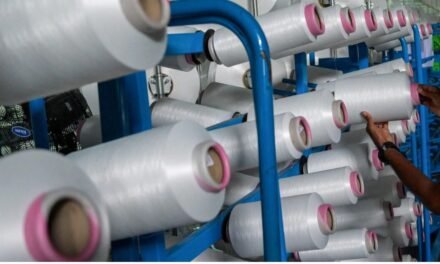
Surat’s textile industry is experiencing increased attention from both global and local brands as political instability and worker unrest in Bangladesh prompt companies to seek alternative garment suppliers. Industry experts in Surat report receiving a high volume of inquiries for ready-to-wear garment production, which could greatly enhance the sector’s growth.
Surat’s garment sector, currently expanding at 12 percent annually, is expected to see a 20-25 percent growth if these inquiries result in confirmed orders, experts suggest. Textile hubs in Tamil Nadu, Punjab, and Noida are also poised to benefit from this shift, according to a report.
Bangladesh, the second-largest exporter of ready-made garments after China, heavily depends on fabric from Surat. However, due to ongoing political instability, law-and-order issues, and unrest among workers, many major brands are now seeking alternatives in Indian manufacturing.
“Surat traditionally produces ethnic wear, kurtis, low-priced women’s clothing, and some denim. But we are now seeing a significant rise in queries from global brands, which could bring huge benefits to the sector,” said Ashish Gujarati, Former President of the South Gujarat Chamber of Commerce, reported.
Surat’s textile industry currently generates a monthly turnover of Rs 600 cr, primarily from man-made fibres. Other textile hubs, including Tiruppur and Coimbatore in Tamil Nadu, Ludhiana in Punjab, and Noida in Uttar Pradesh, are also expected to benefit from this shift.
Gujarati emphasized that while short-term growth is apparent, sustained long-term development will require government support. “With the right backing, India could greatly enhance its standing in garment manufacturing,” he remarked.
Bangladesh’s garment industry is facing pressure due to financial difficulties, resulting in widespread unrest in areas such as Dhaka, Chittagong, Gazipur, and Narayanganj. A recent report from Swedwatch, a Swedish non-profit, shed light on the challenges faced by workers and called on European Union members to implement stricter regulations to safeguard workers’ rights.
The report also recommended that global brands engage in constructive partnerships with stakeholders and trade unions to improve working conditions and ensure fair wages. Additionally, it suggested implementing training programs to address worker concerns and boost productivity.






















